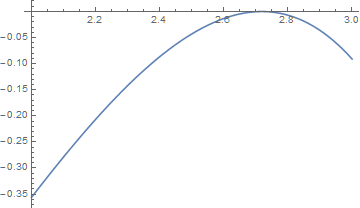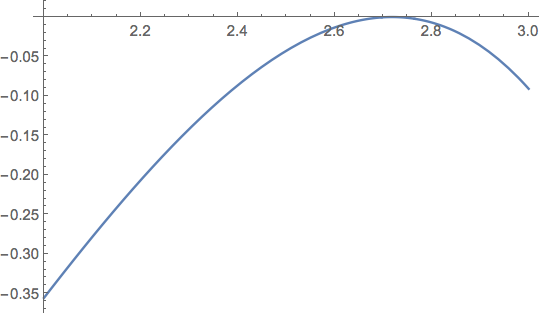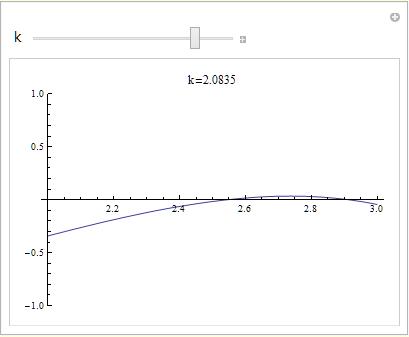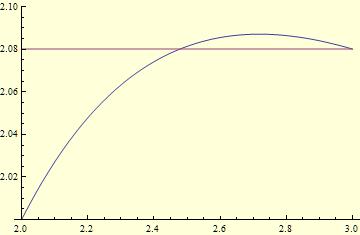I need a help to find k here:
$f(x)=-k^x + x^2$
It is not too simple. I have interest to find the single value of "k" where, inside interval {x,2,3}, the function have only one value to x when f(x) = 0.
In fact, using try and error I have already found the value:
ratio = -2.0870652286345332^x + x^2
Plot[ratio, {x, 2.715, 2.720}]
FindMaximum[ratio, {x, 2.715, 2.720}]
NSolve[ratio == 0 && x >= 2, x]

I need to know, a better way to reach the value -2.0870652286345332 to k. Optimization? Solving? I was unable to got it.
Any insight are welcome.
Best regards




